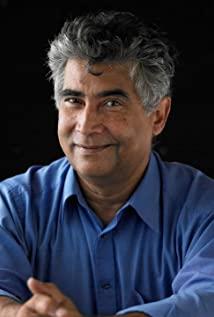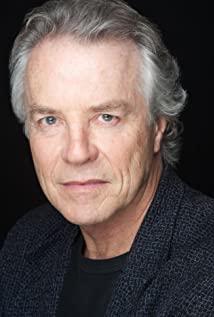Let's talk about the title first. The English name is DISGRACE, which is also the name of Kuqieyuan's novel. The Chinese name of the novel is "Shame", and the version of the movie I watched also used the translation of the novel, as well as "Shame" and "Notorious". By listing these translation names, it can be seen that each translator has a different understanding of the word. The translation of the mainland name played a trick, it seems to include the meaning of disgrace, shame, humiliation, shamelessness, shame, all make sense, but in fact it is not clever, it generalizes the theme of the film. The reason why I haggle over the name is because it is closely related to the theme of the whole movie. (I also borrow the word shame here) What does the author's shame refer to? Where does shame come from? This is about interpreting the hidden meaning of the film.
The film is actually divided into two parts, the first half is about the life of Professor Lurie, and the second half is about the life of Lurie and his daughter. And the whole movie is linked by xing, which is an involuntary and harmonious xing. To put it directly, it means violence. Lucy's rape was straightforward, with three black kids crashing into her home, burning her father, and turning her around. This is the climax of the film, around which the rest of the story unfolds. The first half is the story of her father, Professor Lurie, who seems to be an excitable man. He vented his exuberant energy on different prostitutes, and then paid them money. In fact, this was also a kind of coercion. In the name of money, although his behavior was gentle and elegant, it was still a kind of coercion of money. violent. Later, he used his power as a professor to coerce the beautiful black female student to have sex with him by taking exams. Isn't this a kind of violence? The incident made Lurie notorious, and he left school in a daze to meet his daughter in the country.
Here, the director reflects Lurie's graceful rape of black female students in college, and the violent rape of three black children in the countryside, Lurie's daughter Lucy, who is in love with each other, in the same length, forming a composition. A strong and interesting correspondence, in which the director (actually it should be Coetzee, since he has not read the novel, I will refer to it as the director) implicitly expresses his point of view. After the incident, Luli still had no regrets about the accusations made by the jury, and he took everything for granted. He thought he could be found guilty, but he made no apology. Because sin is determined by others, and apology only comes from the heart. The black child who forced aa to expose the West had no regrets in the face of the painful Lucy, and even continued to peep at her; and Lucy's neighbor, the brother-in-law of the black child, also took it for granted, because "he is just a child". Through this comparison, the director strongly implies that Lucy's rape is just tit for tat, and there is an effect for any cause: if there is her father's graceful violence against black girls, there must be a black man's love for Lu Xi. West's rough and strong jian. Lurie believes that his sex with black girls is not forced by his own logic, and he refuses to repent, so it is reasonable for blacks to deal with this matter according to their own rules. This is the logic of the director, or Coetzee.
The most interesting thing is Lucy's own attitude. Although it was painful, she accepted it calmly. She had been attacked before, and it might happen again, but she had no intention of leaving here. After she was raped and pregnant, she decided to give birth to this child and marry the black man who raped her. In the face of her father's puzzlement and surprise, she was unusually persistent. She asked her father not to look at things in the countryside from the perspective of the city, because here has its own logic and its own life. It is "we" who disturb the lives of others, and "we" are just outsiders. In the end, Professor Lurie accepted his daughter's thinking, albeit without difficulty; he also went to the black girl's home, apologized to her father, and knelt down to her mother and sister for forgiveness.
At this point, the intention of the director or the author is fully revealed: Lucy has become a saint, and she represents the white people who are atonement for the black people; the white people are just outsiders from the land of South Africa, and they interfere with the original life of the black people living on this land; Others have accepted you in their own land, so don’t try to interfere with others with your own culture, you can only deal with problems according to other people’s ways, no matter how unreasonable or unreasonable it is from your own point of view. against the norm. In the author's eyes, apology is more important than conviction, and Lucy would even admit his guilt without admitting his wrong; and black people also think that it is more important to be able to live in harmony with them. The director or author here overemphasizes the uniqueness of culture and denies universal logic; he magnifies the issue of race infinitely, while ignoring the sin and non-sin of human beings, the good and evil of human nature, and has a strong political sex.
Let's go back to the topic mentioned at the beginning. What exactly does DISGRACE stand for? humiliation? Lucy has no humiliation, whose humiliation is that? Notorious? That's true for Lurie, but he's not the point of the film, is it all the white South Africans he represents? I think the word Coetzee is using here should mean disgrace: the occupation of South Africa by whites of the previous generation was a disgrace because they grossly interfered in the lives of others; It is also a shame to insist on their superior view, such as Lurie, who takes advantage of his wife and daughter but cares about his daughter being raped. To get rid of this shame, then, like Lucy, you must integrate into the lives of black people with a redemptive mentality, and think and act from the perspective of black people. Here, the director or the author uses an attractive story to gently force the audience or readers with a fair-looking point of view and an elegant gesture.
The latter can't be posted anymore. (Finally posted all) I can only go to my blog: http://hi.baidu.com/weltw
View more about Disgrace reviews











